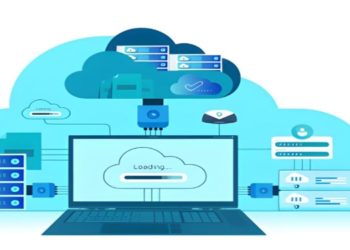As businesses increasingly adopt Voice over Internet Protocol (VoIP) systems for their communication needs, ensuring the security of these systems becomes paramount. VoIP technology leverages the internet to transmit voice calls and data, which opens up potential vulnerabilities that malicious actors can exploit. To safeguard your organization’s communication and sensitive information, it’s essential to implement robust security measures. In this article, we’ll explore the key VoIP system security measures you should consider to protect your communication infrastructure from potential threats.
Encryption Protocols
Encryption is a fundamental security measure for any voip phone. Encryption transforms voice data into a secure, unreadable format during transmission, ensuring that even if intercepted, the data remains inaccessible to unauthorized individuals. Secure protocols like Transport Layer Security (TLS) and Secure Real-Time Transport Protocol (SRTP) are commonly used to encrypt VoIP traffic.
By implementing strong encryption protocols, your VoIP system can safeguard against eavesdropping and unauthorized access to sensitive call data and user information.
Firewall Protection
Firewalls act as the first line of defense against cyber threats by monitoring and controlling incoming and outgoing network traffic. VoIP systems should be protected by robust firewalls to prevent unauthorized access and potential Distributed Denial-of-Service (DDoS) attacks.
A properly configured firewall can block suspicious IP addresses and detect and prevent any unusual or malicious activities, reducing the risk of unauthorized access to your VoIP infrastructure.
Regular Software Updates and Patch Management
Outdated software can contain known vulnerabilities that can be exploited by cybercriminals. To ensure the security of your VoIP system, implement regular software updates and patch management. This practice helps keep your system up-to-date with the latest security patches and fixes provided by the VoIP vendor.
By promptly applying software updates, you can address known vulnerabilities and mitigate potential security risks, safeguarding your VoIP communication from emerging threats.
Secure Authentication and Access Control
Strong authentication and access control mechanisms are essential to prevent unauthorized access to your VoIP system. Require users to use strong, unique passwords and implement multi-factor authentication (MFA) whenever possible to add an extra layer of security.
Restrict access to sensitive features and administrative controls to authorized personnel only. Role-based access control (RBAC) allows you to assign specific permissions to different user roles, ensuring that each user has access only to the features relevant to their responsibilities.
Network Segmentation
Network segmentation involves dividing your VoIP system into smaller, isolated segments or Virtual LANs (VLANs). By separating voice traffic from data traffic, you can minimize the potential impact of a security breach on your entire network.
Network segmentation limits unauthorized access to sensitive voice data and ensures that even if one segment is compromised, other segments remain secure.
Intrusion Detection and Prevention
Intrusion Detection Systems (IDS) and Intrusion Prevention Systems (IPS) monitor network traffic for suspicious or anomalous activities. IDS detects potential threats, while IPS takes immediate action to block and prevent suspicious traffic from compromising your VoIP system.
These systems can detect various types of attacks, such as DoS attacks or attempts to exploit vulnerabilities in your VoIP infrastructure, helping you respond proactively to potential threats.
Call and Data Encryption for Voicemail and Recordings
In addition to encrypting real-time voice calls, it’s essential to implement encryption for voicemail messages and call recordings. Encryption ensures that any stored voice data is protected from unauthorized access.
If your VoIP system allows users to record calls for training or documentation purposes, encrypted call recordings prevent sensitive information from being exposed in case of a data breach.
VoIP Service Provider Security
When selecting a VoIP service provider, consider their security measures and practices. Choose a reputable provider that complies with industry security standards and regulations. Conduct due diligence to ensure that the provider follows best practices for data protection, data privacy, and network security.
Additionally, inquire about the provider’s disaster recovery and backup procedures. A reliable disaster recovery plan ensures that your communication system remains operational even in the face of unexpected events.
User Training and Awareness
While implementing robust security measures is crucial, the effectiveness of these measures also depends on the knowledge and practices of your VoIP system users. Conduct regular training sessions to educate employees about VoIP security best practices, potential threats, and how to identify and report suspicious activities.
Employees should be aware of the importance of using strong passwords, enabling multi-factor authentication, and not sharing sensitive login credentials. Training sessions can also cover phishing awareness, emphasizing the importance of not clicking on suspicious links or providing personal information over the phone.
Encourage a culture of cybersecurity awareness, where employees are proactive in reporting any security concerns or incidents they encounter. By promoting a vigilant workforce, you can significantly reduce the risk of human error-related security breaches.
Regular Security Audits and Penetration Testing
Performing regular security audits and penetration testing is essential to proactively assess the effectiveness of your VoIP system’s security measures. A security audit involves evaluating your VoIP infrastructure and policies to identify potential vulnerabilities and areas for improvement.
Penetration testing, also known as ethical hacking, involves simulating real-world cyber-attacks to assess your VoIP system’s resilience against various threats. Ethical hackers attempt to breach your system’s security to uncover potential weaknesses before malicious hackers do.
By conducting these assessments periodically, you can identify and address security gaps promptly. Regular audits and penetration tests provide valuable insights into the effectiveness of your security strategy and help you stay ahead of emerging threats.
Based on the findings from these assessments, make necessary adjustments to your security measures and update your security policies as needed. This proactive approach ensures that your VoIP system remains secure, protecting your communication infrastructure and sensitive data from potential cyber threats.
Conclusion
In conclusion, securing your VoIP system is of utmost importance to protect your organization from potential cyber threats and unauthorized access to sensitive communication data. Implementing encryption protocols, firewall protection, and access controls are foundational steps in safeguarding your VoIP infrastructure.
Regular software updates, network segmentation, and intrusion detection further enhance your security posture. Encrypting voicemail and call recordings, along with vetting your VoIP service provider’s security practices, ensure a comprehensive security strategy. By prioritizing these security measures, you can confidently deploy VoIP in your organization while maintaining a secure and reliable communication environment.
David Prior
David Prior is the editor of Today News, responsible for the overall editorial strategy. He is an NCTJ-qualified journalist with over 20 years’ experience, and is also editor of the award-winning hyperlocal news title Altrincham Today. His LinkedIn profile is here.













































































